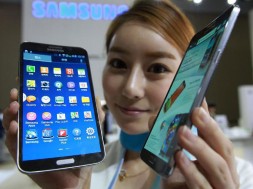Smartphones are essentially hand-held mini-computers on which you can also make phone calls, and the mobile communications industry is spending many millions in developing and promoting them as the future of integrated office communications.
In addition to making phone calls, any device referred to as a smartphone must include an identifiable operating system, such as Windows Mobile on which Microsoft PC office suite is replicated, and that can also accept add-on applications. The most frequently used operating system on smartphones is Symbian, but that is primarily due to the fact that they first took off in Japan and the Far East. However, Windows Mobile and Linux are fast making up ground as more of the devices are taken up in North America and Europe.
A common example of a smartphone is a Blackberry; although by no means are they exclusively smartphones: Nokia, Ericsson and other major mobile manufacturers also produce them. Some new versions of smartphones also allow users to make VOIP calls, otherwise known as internet phone calls, in addition to using their regular mobile provider network. To take advantage of that facility or to access the internet for other applications users need to be in the vicinity of WiFi broadband hotspots, but as they are springing up everywhere throughout the UK that is not a major problem.
The real beauty of smartphones to their users is the fact that they can take their office with them, wherever they go. As the phone is loaded with sophisticated software, even if users are not connected to the internet they can still use their time productively, until such time as they find a Wifi hotspot. So, any document that needs to be written, amended or updated can be worked upon while the user is on the move, or out of the office.
Indeed it was the rapid uptake of smartphone devices that prompted computer giant Microsoft to enhance their Windows mobile Personal Digital Software (PDA) software so that it now offers the best of a mini-PC and integrates it with the features of a mobile phone. Their updated software not only allows a user access to corporate information but also to personal items such as games, music, and e-books.
Because of the versatility and portability of smartphones many major UK companies that value instant integrated communications are now issuing smartphones, rather than regular mobile phones, to their extended workforce. Not only can colleagues keep in touch by voice, they can also email and share files that otherwise would need to be sent via PC.





